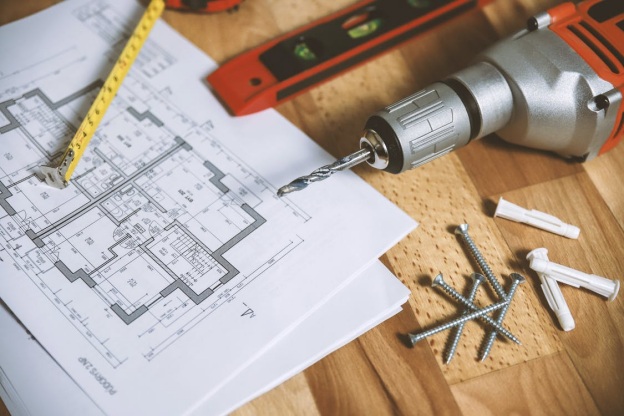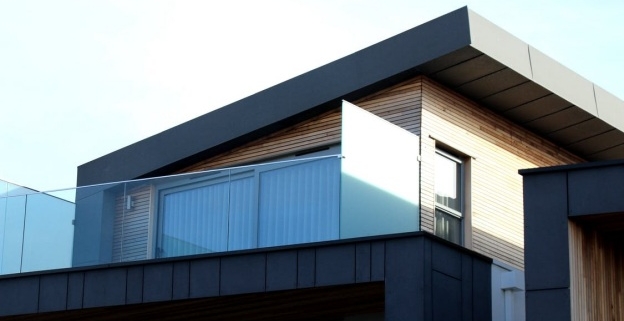Understanding Home Construction Loans
Are you considering turning your raw land into a high-value residential property? If yes, then a construction loan can help finance your home-building project!
Construction loans are offered to real estate developers and homebuyers who want to develop land and turn it into a residential property. However, not knowing the construction loan terms and requirements can do more harm than good!
To navigate through the home-building process, we have come with this brief guide on home construction loans. We explore what home construction loans are, who can benefit from them, and how borrowers can close the loan at the end of the loan period.
What are Home Construction Loans?
A home construction loan is specifically designed to facilitate home buyers and real estate developers. Borrowers can take out the construction loan to build residential property from scratch or even remodel existing residential properties.
Since lenders are extending home construction loans on low-value collateral (which is the unbuilt property), the loan terms can come with high-interest rates and other stringent requirements.
Home Construction Loans: How do they work?
Consider this: You are a home buyer who wants to build their residential property from scratch.
You already have a parcel of land to your name but need to finance the construction or the home-building process. You can meet up with a contractor, build a home plan, and learn all about the costs involved in the project. Your estimates suggest that your home building project would cost you around $350,000.
With the construction plan, blueprints, and cost estimates in your hand, you seek out a $350,00 construction loan to finance the project. According to your drawdown schedule, your contractor requires $60,000 for the construction costs. The lender will forward this loan amount to the contractor, and you’ll be required to pay interest on this $60,000 amount only. As you progress through the construction period, you take out the loan amount according to your drawdown schedule and leave the rest with the lender.
At the end of the loan period, the lender will only require the borrower to pay interest on the loan amount they withdrew from the lender. Borrowers can take out an end loan with another lender or bank and refinance the construction loan into a long-term home mortgage.
Types of Construction Loans: What Are a Homebuyer’s Options?
With home construction loans, borrowers can apply for either a construction-only loan or get in touch with a lender for a construction-to-permanent loan.
Here’s how they differ.
- Construction-only Loans – With a construction-only loan, borrowers can expect funds that’ll finance the building project. From buying the land to financing labor and materials, a construction-only loan can provide disbursements based on the progress of the home building phases. However, at the end of the loan period, the borrower will need to repay the construction-only loan or refinance it into a long-term mortgage loan.
- Construction-to-permanent loans – On the other hand, a construction-to-permanent loan allows the buyers to draw payments according to the progress of the home-building process, skip past the closing costs, and is structured to convert into a traditional mortgage loanprogram on itself.
How to Qualify For One?
Since the property hasn’t been built yet, extending a construction loan can mean a high-risk investment for lenders. To ensure that they’re extending loans to the right borrowers, lenders hire underwriters to analyze these construction loan applications.

Moreover, these home construction loans aren’t extended by most lenders and come with some strict requirements.
However, a carefully planned application and the right documents can help you come out of the underwriting analysis victorious! Here’s how you can qualify for a home construction loan and build your dream house.
Keeping Low LTV ratios
To tip the loan terms in your favor, we recommend that you put a sizeable down payment on your property. A 20% or higher down payment reduces risks for the lenders, lowers the Loan to Value Ratio, and sets you in a position to negotiate your loan terms.
Moreover, it can help borrowers work out lower interest rates on the loan amount!

Excellent Credit Scores
Most lenders wouldn’t consider loan applications unless the borrower has an excellent credit history.
A credit score of more than 730 determines the borrower’s creditworthiness and assures the lender that they won’t default on their payments. Moreover, credit histories, financial records, and a low Debt-to-income ratio can help improve a borrower’s prospects of landing a home construction loan.
An in-depth Property Appraisal
A lender might require you to appraise the property and get an estimate of the completed project’s value. This appraisal will consider the value of the land the property’s built on and the value of the home structure. A high anticipated sale value will act as collateral and lower risks for lenders. They can bank on the property if the borrower defaults.
Apart from the lender’s appraisal, we recommend that borrowers perform a personal appraisal to get an anticipated sale value for their property.
An Elaborate Construction Plan
Before you begin applying for home construction loans, take the time to work on your construction plan.

Meeting up with a builder or contractors, preparing the blueprints, setting images, illustrations, and other construction project specifications will let the lender know that you’re really interested in securing financing.
Moreover, the construction plan can help them in the appraisal process and estimate the property’s anticipated sale value.
Choose Commercial Private Equity For All Your Real Estate Financing Needs
If you’re looking to finance real estate transactions or make down payments to close a deal, Commercial Private Equity is the right choice for you!
We work with clients and corporations at our private money lending firm and help them take out hard money loans, bridge loans, and construction loans at the most feasible loan terms. From assisting real estate developers to facilitating new homeowners, our short-term construction loans are designed to cut down risks for our borrowers and help you build the house of your dreams!
Get in touch with our representatives to learn more about our construction loan programs and loan terms.



